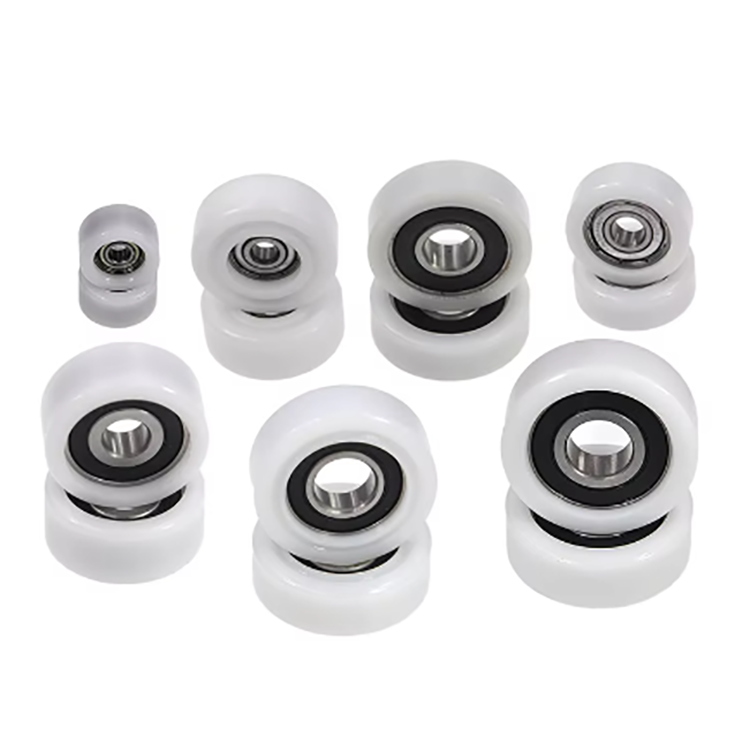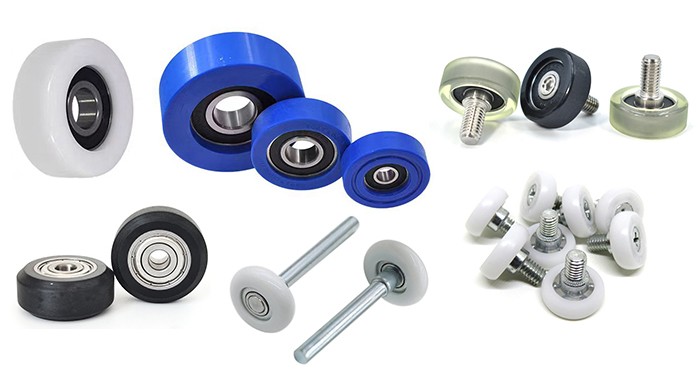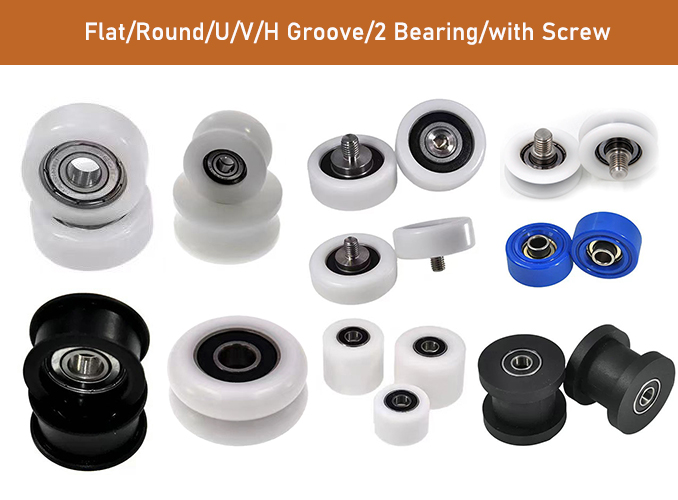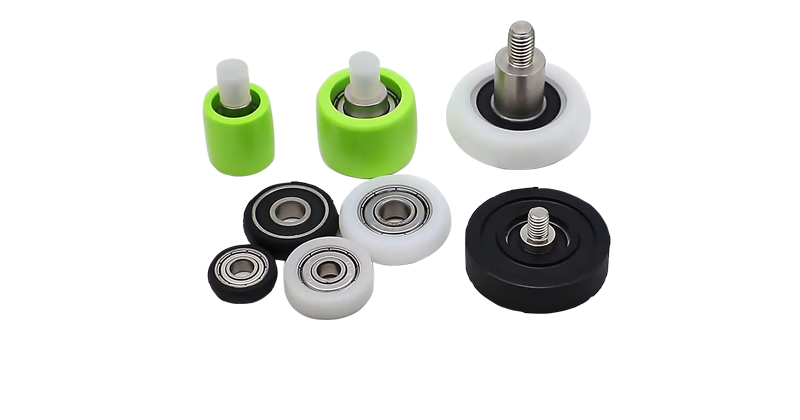86-15820855246(WhatsApp)
info@semeimachinery.com
 SEMEI Wheel Bearings : What are nylon rollers used for?
SEMEI Wheel Bearings : What are nylon rollers used for?Nylon rollers are versatile components used in a wide range of applications due to their unique properties. Here is a detailed introduction to the uses of nylon rollers:

Nylon rollers are rollers made from nylon, a synthetic polymer known for its strength, durability, and low friction properties. These rollers are designed to facilitate the smooth movement of objects along a track or guide.
Strength and Durability:
High Tensile Strength: Nylon has excellent tensile strength, making it suitable for applications that require robust components.
Impact Resistance: Resistant to impact and wear, ensuring long-lasting performance.
Low Friction:
Self-Lubricating: Nylon has low inherent friction and is often self-lubricating, reducing the need for additional lubricants.
Smooth Operation: Provides smooth and quiet operation, reducing noise and wear on other components.
Corrosion Resistance:
Chemical Resistance: Resistant to many chemicals, including oils, acids, and solvents.
Moisture Resistance: Resistant to moisture and humidity, making it suitable for use in wet environments.
Temperature Resistance:
Wide Operating Range: Can operate effectively over a wide range of temperatures, from below freezing to moderately high temperatures.
Thermal Stability: Maintains its properties and performance under varying temperature conditions.
Lightweight:
Low Density: Nylon is lightweight, reducing the overall weight of the system and potentially lowering energy consumption.
Electrical Insulation:
Non-Conductive: Provides electrical insulation, making it suitable for applications where electrical conductivity is undesirable.

Doors and Windows:Used to furniture hardware fittings,garage door, mobile doors, sliding glass doors, sliding aluminum doors and windows, shower panels and drawers
Conveyor Systems:
Belt Conveyors: Used to support and guide conveyor belts in industrial settings.
Chain Conveyors: Used to guide chains and ensure smooth movement of materials.
Roller Conveyors: Used in roller conveyors to move boxes, packages, and other items.
Material Handling:
Carts and Trolleys: Used in carts and trolleys to facilitate smooth movement.
Pallet Racks: Used in pallet racks to guide and support pallets.
Automotive:
Window Regulators: Used in window regulators to guide the window mechanism.
Seat Adjusters: Used in seat adjusters to guide the seat movement.
Sunroof Mechanisms: Used in sunroof mechanisms to guide the opening and closing of the sunroof.
Consumer Goods:
Appliances: Used in washing machines, dishwashers, and other home appliances to guide belts and other moving parts.
Office Equipment: Used in printers, copiers, and other office machinery to guide paper and other materials.
Medical Devices:
Portable Equipment: Used in portable medical devices to guide cables and tubes.
Imaging Equipment: Used in MRI machines and other imaging devices to guide cables and belts.
Industrial Equipment:
Lifting Equipment: Used in hoists, cranes, and winches to guide cables and ensure smooth operation.
Packaging Machines: Used in packaging machines to guide and support packaging materials.
Marine:
Boat Rigging: Used in sailboat rigging to guide and control ropes and lines.
Dock Equipment: Used in dock winches and pulleys for securing boats.
Agricultural:
Harvesting Equipment: Used in harvesting equipment to guide and support moving parts.
Irrigation Systems: Used in irrigation systems to guide and support water distribution lines.
Sports and Recreation:
Exercise Equipment: Used in exercise equipment like treadmills and elliptical trainers to guide moving parts.
Water Sports Equipment: Used in water sports equipment like kayaks and paddleboards to guide and support moving parts.
Installation:
Mounting: Ensure the roller is securely mounted on the shaft or frame.
Alignment: Align the roller with the track or guide to ensure smooth operation.
Testing: Test the roller system to ensure it operates smoothly and safely.
Maintenance:
Regular Cleaning: Clean the roller and track to remove dust and debris.
Lubrication: While many nylon rollers are self-lubricating, occasional lubrication with a suitable lubricant can help maintain performance.
Inspection: Periodically inspect the roller for signs of wear or damage and replace it if necessary.
Nylon rollers are versatile and efficient components that offer a range of benefits, including strength, low friction, corrosion resistance, and lightweight construction. They are widely used in various industries and applications, from conveyor systems and material handling to automotive, consumer goods, and medical devices. By understanding their key properties and proper installation and maintenance, you can ensure optimal performance and longevity.
